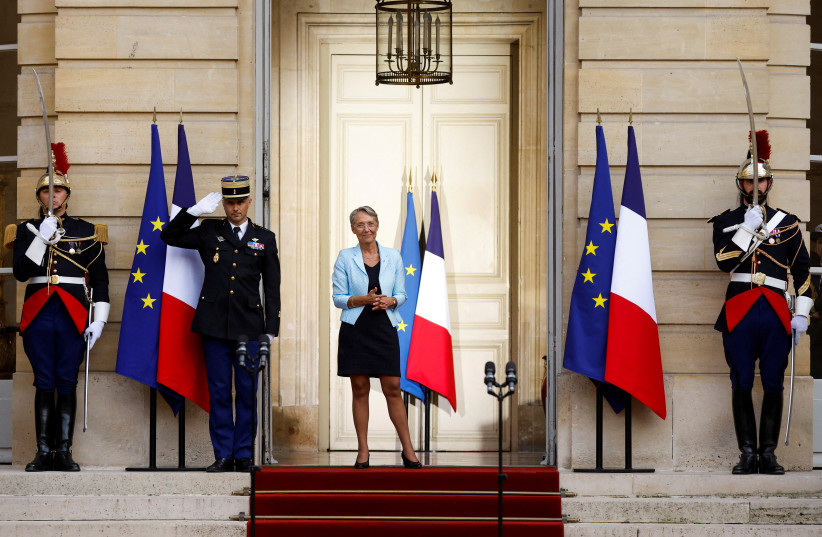French President Emmanuel Macron appointed Labor Minister Élisabeth Borne as the new prime minister of France on Monday. Borne is the second female prime minister in the republic, and is also the daughter of a Jewish Holocaust survivor. Here are her Jewish roots:
Borne, 61, was born in Paris’s 15th arrondissement (administrative district) to Joseph (Borne) Bornstein and Marguerite Lecèsne.
Her father is a Jew of Polish origin, born to a family that fled to France in 1939 as refugees escaping from the Nazis. He was a member of the Resistance and was therefore deported in 1942 from France. He was naturalized as a French citizen in 1950.
Borne’s parents ran a pharmaceutical laboratory. Since her father passed away when she was just 11 years old, she became “a pupil of the Nation,” receiving educational benefits granted by the state to minors who had a parent injured or killed during a war, a terrorist attack or while rendering certain public services. This allowed her to obtain a full scholarship for her studies.
She had previously spoken about being the daughter of a single mother, saying in an interview that “It has not always been easy. I lost my father when I was very young and so we ended up with my mother, who had two daughters and who did not really have an income.”

When Borne presented her naturalization decree as a citizen for the first time, as a prefect in school, she was moved. She told a local newspaper in 2015: “That I, the daughter of this stateless refugee who only became French in 1950, made this gesture... says something about integration.”
Borne has served as a civil servant for decades – but is not considered someone who might overshadow Macron.
Before joining Macron’s government and his centrist party La République En Marche (LREM), Borne worked with several ministers from the Socialist Party. She had been a longtime member of the party even before joining Macron. She served as environment minister for a short time, before becoming the Labor minister.
According to French media, under Borne’s watch, unemployment reached its lowest rate in 15 years – and youth unemployment to its lowest rate in 40 years.
She also has a background in urban planning and in 2013 was appointed Prefect of Vienne and the region of Poitou-Charentes, the first woman to carry this title.
Borne served as private secretary to the minister of ecology, sustainable development and energy and afterward worked as the chief executive officer of RATP Group, a state-owned enterprise providing services in the field of public transportation.
